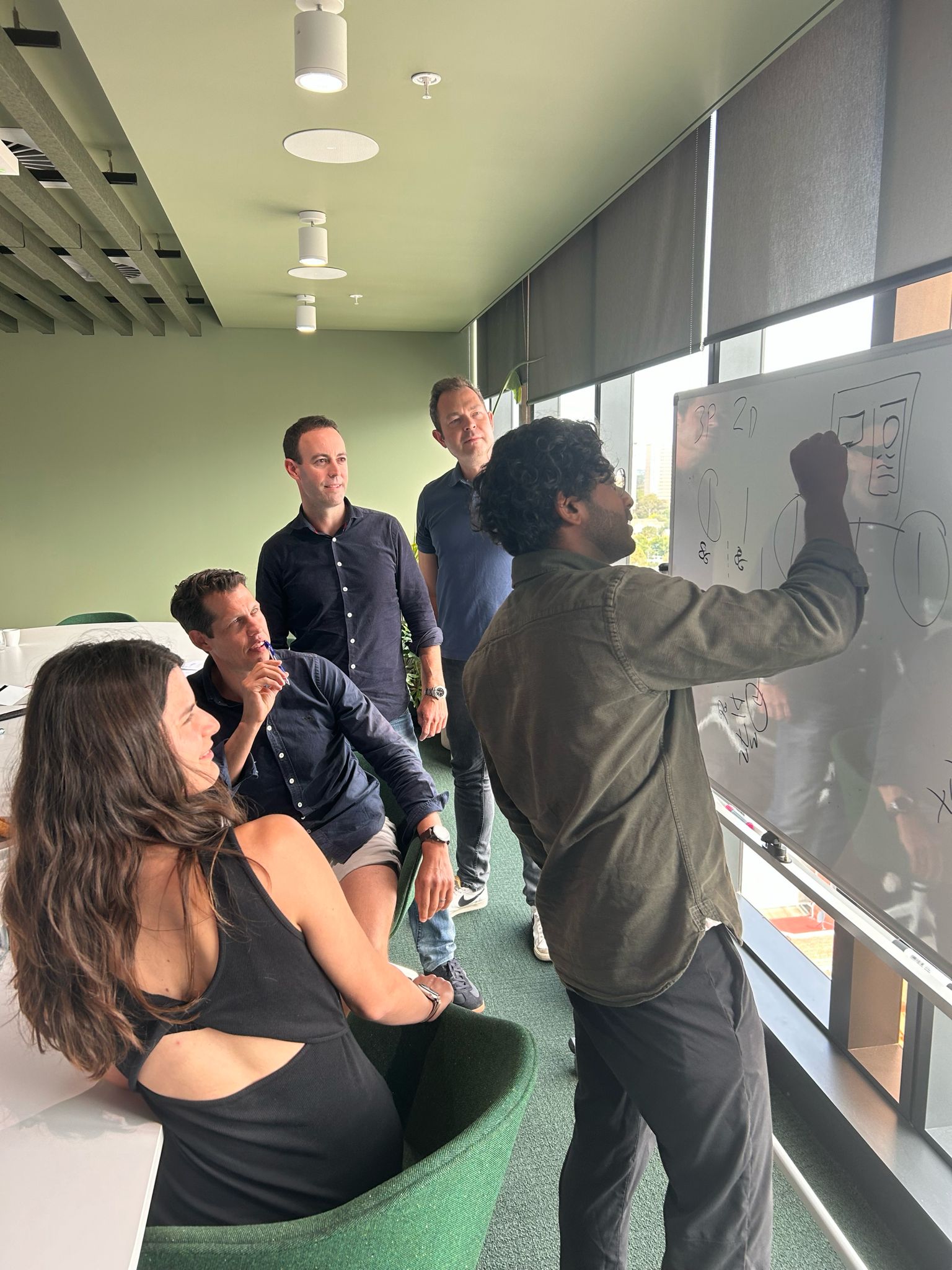Thank you! Your submission has been received!
Oops! Something went wrong while submitting the form.

Mayfly collaborated with the MUCUDU team to build a low-code MVP for their hospitality tech platform, which includes loyalty management, peer-to-peer monetary gifting, and Tab functionality.
Beyond the standard integrations with Stripe, Apple, and Google for login and payments, we incorporated advanced integrations with Point of Sale systems like Doshii and AI-driven recommendations that personalize the dining experience.
2025 feels like the dawn of the AI Agent revolution—a time when software isn’t just smart, but autonomous enough to carry out tasks, make decisions, and improve itself with minimal human input. If you’re a developer or founder looking to get ahead of the curve, building AI agents is one of the most exciting frontiers in tech right now.
Whether you’re a seasoned engineer or diving into AI for the first time, this guide will outline best practices for developing AI agents that don’t just work but thrive in real-world applications.

The most common pitfall for developers is getting swept up in the tech and forgetting the end user. Before diving into building, identify a specific problem or inefficiency your AI agent will solve.
For example, Fairgo—an AI HR agent—was built to streamline hiring processes by automating initial candidate interviews and recommendations. Its success lies in its laser focus on solving a pain point for recruiters, not just showcasing the capabilities of AI.
Tip: Spend time talking to potential users. Understand their workflows and pain points deeply before writing a single line of code.
Not all AI agents are built the same, and your choice of foundational model matters. Popular options include:
Understand what your agent needs to achieve. For complex, industry-specific tasks, you may need fine-tuned models. For broader, text-based applications, pre-trained models may suffice.
Tip: Keep scalability in mind. Choose a platform that allows easy iteration and adaptation as your agent evolves.
AI agents don’t have to cost millions to build. Platforms like Bubble.io and Flutterflow make it easier than ever to create functional prototypes without deep technical expertise.
At Mayfly Ventures, we’ve seen startups validate their AI agents in weeks using low-code tools, saving tens of thousands in development costs. Your first iteration doesn’t need to be perfect—it needs to be viable.
The power of AI agents lies in their ability to understand context. Generic models like GPT-4 are powerful but often lack the industry-specific nuance required for vertical AI agents.
Fine-tuning your model with domain-specific data is key. For instance, training a sales AI agent on scripts, common objections, and CRM data will make it far more effective than relying solely on out-of-the-box models.
Tip: Use small-scale pilot programs to gather data and fine-tune incrementally based on real-world feedback.
AI agents operate in environments where trust is non-negotiable. Whether it’s healthcare, finance, or customer support, users need to understand how and why your agent makes decisions.
To build trust:

An AI agent’s value lies in how well it complements existing workflows. For example, Relevance AI offers APIs that can easily integrate with no-code tools, CRM platforms, and even legacy systems.
Avoid building an AI agent in isolation. Make it compatible with the tools and processes your target users already rely on.
The best AI agents are built through iteration. Launch a minimum viable product (MVP) with a narrow feature set, then gather feedback from users to improve functionality.
Example:
When Mayfly Ventures built VOLI’s AI-powered MVP, the focus was on proving its ability to solve one core problem. Iterative updates, guided by user feedback, led to a robust platform that’s now onboarding enterprise customers.
AI agents don’t replace humans—they amplify them. Design your agent to complement human workflows, not to replace them entirely.
For example:
Ethics in AI is no longer optional. Be mindful of potential biases in your model, and ensure compliance with data privacy laws like GDPR or Australia’s Privacy Act.
Proactively address these concerns by:
The work doesn’t stop once your AI agent is live. Maintenance, updates, and retraining are ongoing processes.
Invest in:
Developing AI agents isn’t just about building—it’s about solving real problems, iterating based on user feedback, and ensuring long-term usability. Whether you’re a solo founder or part of a venture studio, following these best practices will help you build AI agents that deliver real value and stand out in the market.
At Mayfly Ventures, we specialize in helping founders build scalable AI agents using low-code tools and cutting-edge models like Relevance AI. If you’re ready to turn your idea into reality, let’s talk.
.webp)

We’re a team of engineers, designers and venture builders. We partner with industry experts to build and launch AI and software ventures.
We combine your insight and network with our proven playbook and venture building expertise to turn bold ideas into globally scalable products.
We back ventures with capital. With skin in the game our support goes far beyond deliverables, we’re an invested partner in your success.
Here to support from idea conception, to commercialisation and well beyond launch.
You're an industry insider with a deep understanding of the pain points and inefficiencies in your sector which are prime for AI disruption.
You have the network to access early adopters locally with the conviction to scale globally.
You are looking for a partner experienced in launching tech ventures to guide you the process of building, launching and scaling an Al platform to transform your industry.

